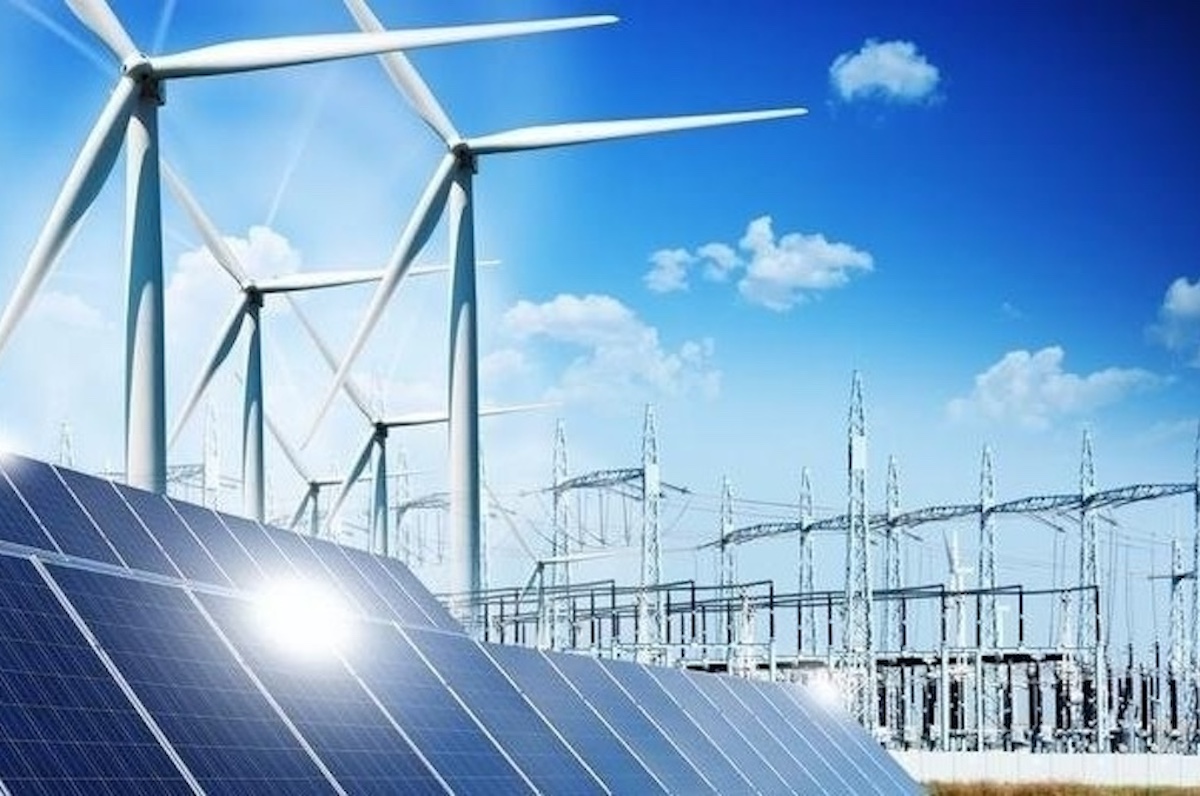Azerbaijan, Kazakhstan and Uzbekistan are set to consolidate a strategic partnership in sustainable energy initiatives, a collaboration that promises to supply clean energy to Europe and beyond.
The three nations, following a mid-July meeting, are set to finalize an intergovernmental agreement that emphasizes clean and renewable energy sources, energy efficiency and cutting-edge technologies.
Key provisions include joint efforts in generating, transporting and trading environmentally friendly hydrogen and ammonia. Moreover, they aim to facilitate the transmission and distribution of electricity from renewable sources.
The groundwork was laid during the Third Tashkent International Investment Forum in May. There, the economy and energy ministers from the three countries met together and signed a “Memorandum of Understanding on Merging the Energy Systems of Azerbaijan, Kazakhstan, and Uzbekistan.”
This includes the operationalization of renewable energy resources, the production and export of green energy to Europe through Azerbaijan’s territory and the trilateral integration of energy systems.
The forthcoming agreement thus marks a significant step toward sustainable energy integration and regional economic cooperation. Separately, earlier this month, Azerbaijan and Uzbekistan discussed the expansion of bilateral investment cooperation projects they deemed as “strategic.”
Azerbaijan’s economy minister, Mikayil Jabbarov, participated in the 13th meeting of the bilateral intergovernmental commission in Tashkent, meeting with Uzbekistan’s minister of investment, industry and trade, Laziz Kudratov.
This meeting continued concerted efforts over the past few years by the governments of Azerbaijan and Uzbekistan to deepen their economic and diplomatic cooperation.
In August last year, Uzbekistan President Shavkat Mirziyoyev was received on a working visit to Azerbaijan, reciprocating three visits to his country by Azerbaijan’s President Ilham Aliyev in 2022.
The meetings marked a significant development in bilateral ties, as several strategic cooperation agreements were signed that emphasized their commitment to removing barriers in trade and transport.
Aliyev’s visits in 2022 had already seen the creation of a joint investment fund and nearly two dozen agreements for development of specific industrial production projects in both countries.
Mirziyoyev, during his August 2023 visit to Baku, also visited Karabakh and promised contributions to the region’s restoration following three decades of Armenian military occupation. In Baku, Mirziyoyev and Aliyev established a Supreme (or High) Interstate Council between their countries, solidifying their long-term prospects of cooperation.
A memorandum for cooperation between their National Security Councils, along with a protocol allowing visa-free travel for citizens of Azerbaijan, was also signed. At the same time, a roadmap for deepening the strategic partnership was agreed.
In 2023, the two countries’ bilateral trade surged by over a quarter to reach US$231.6 million. According to Azerbaijan sources, this appears to have fallen significantly on a month-by-month basis in the current year, although sources from Uzbekistan report a slight increase.
The headline goal of the bilateral Intergovernmental Commission on Cooperation is to increase this trade to $1 billion, although without a specific time horizon.
In addition to the petrochemical sector, the two sides have identified mechanical and electrical engineering, construction and construction materials, agriculture and tourism as promising areas for cooperation.
Bilateral energy cooperation has also been increasing since Azerbaijan turned toward Asia in 2021, in reaction against Western opposition to its dislodging of Armenia’s three-decade occupation of one-sixth of its national territory.
Uzbekistan is rich in natural gas but needs to modernize its energy infrastructure. In 2021, the State Oil Company of Azerbaijan (SOCAR) and the Uzbekstani state energy company Uzbekneftegaz signed a memorandum of understanding to explore opportunities for cooperation in the oil and gas sector, including joint ventures in exploration, production and the development of petrochemical facilities.
In June 2023, the two countries announced plans to jointly extract and export gas. Now, the parties are negotiating an agreement under which Uzbekneftegaz will join Azerbaijan’s offshore Shah Deniz project with equity participation.
This initiative may also be in response to Uzbekistan’s declining natural gas production, which fell by 10% in 2023 over 2022, to 46.7 billion cubic meters, as the depletion of the country’s aging existing fields – already depleted by 75-80% – continued.
Azerbaijan’s expertise in oil and gas extraction provides significant possibilities to help realize Uzbekistan’s intentions to increase hydrocarbon production. Azerbaijan’s strategic geographic position enhances the geoeconomic significance of energy cooperation with Uzbekistan.
That is equally true for the Trans-Caspian International Trade Route (TITR, “Middle Corridor”). The potential for trans-Caspian transit cooperation via the Middle Corridor has already been realized with Kazakhstan. It is central to unlocking the potential of the partnership between Azerbaijan and Uzbekistan.
However, the World Bank report on Central Asian connectivity published in April 2024, which is a sort of roadmap for the TITR’s development, largely skirts Uzbekistan in favor of developing a main route through southern Kazakhstan.
Uzbekistan, therefore, looks set to benefit if Azerbaijan succeeds in attracting TITR investment from members of the Gulf Cooperation Council, of which the secretary attended the 25th-anniversary meeting, held in Baku, of the United Nations Special Program for the Economies of Central Asia (SPECA).
The Abu Dhabi National Oil Company (ADNOC) has recently made its first investments outside the Gulf, in Azerbaijan and Central Asia more broadly.



Some think Europe will be broke, rife with internal/external conflict in the near future perhaps if so it will put a damper on on this plan, Do they have a Plan B?